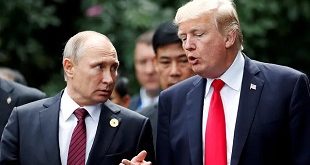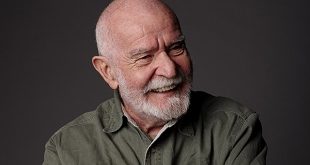
By Mubatsi Asinja Habati
In November, 1999, President Museveni ordered the police to arrest homosexuals after it was alleged that two gay men had wedded in a Kampala suburb. Religious leaders welcomed the president’s directive, insisting that homosexuality is not only against the biblical teachings but it goes against African culture and the laws of nature. But gay activists hit back saying that this precedent would worsen discrimination against them as a community.
Homophobia is widespread in Africa as homosexuality is considered immoral, inhuman and unnatural in African culture. But many gays and their activists argue that homosexuality is a lifestyle that needs to be respected.
For the last few weeks, local media have carried stories of Pastor Robert Kayanja of Rubaga Miracle Centre accusing him of sodomising seven young men from his congregation. Among those accusing Kayanja of sodomy include Samson Mukisa, James Ntwatwa, Ronny Mutebi, David Mukalazi, Akansiime and Robinson Matovu. They all claim the incident happened while they served in his church. Police are investigating the matter.
Anti-gay activists claim that homosexuality is a dysfunctional lifestyle. They argue that that if it were so, then gays would not be actively recruiting people into it. Media have lately been reporting claims by anti gay activists that homosexuals are deliberately recruiting people to become gay, especially vulnerable members of society. But gays have since denied these claims.

There exists so much hate for homosexuality in Uganda and it is being crusaded mainly by religious leaders. For example many homosexuals operate secretly and even those sodomised fear to speak out because of social stigmatisation. So, on 9th June when the rest of Ugandans were celebrating the Heroes’™ day, Pentecostal pastors united against sodomy. They say that victims of homosexuality who have decided to come out publicly to fight the vice by pinning their alleged abusers are the real heroes. Pastors Solomon Male, Martin Sempa and Michael Kyazze organized the parallel function. Ironically those accused of sodomy are said to be some of the leaders of the church flock.
Frank Mugisha, chairperson of Sexual Minorities in Uganda (SMUG), accuses the anti-gay pastors of contradicting the teachings of Christianity that call for embracing all people. He said the church is supposed to be a place of worship and welcoming to diversity. ‘The anti gay pastors have used a wrong platform to fight homosexuality. They are silently pushing away Christians who have been struggling with their sexual orientation, and making us question the teachings of the church.’
He argues that the pastors’™ stance promotes hate towards homosexuals. He adds that is unfortunate to see people who call themselves men and women of God ‘abuse humanity by promoting homophobia, yet they know the dangers of their actions. I always say those who know will be asked more at judgment day. The pastors know these things, they know people are born gay, unless they have no faith and are here to uphold values we do not understand. But in true Christianity they should be embracing gay people who are a minority and vulnerable to larger society just like Christ did,’ Mugisha told The Independent.

The pastors who are anti-gay say they are not fighting Kayanja as a person but the vice of homosexuality he is accused of promoting. They are now demanding for his resignation as leader of the Rubaga Miracle Centre to pave way for investigations.
‘We are fighting homosexuality not Kayanja. Alex Mitala as head of the Pentecostal churches should ask him to temporarily step down as this is a universal standard done all over the world when such cases arise,’ said Martin Sempa.
Following a few days of interrogation of the said sodomy victims, the police CID boss, Edward Ochom, announced in a press conference that Kayanja had no case to answer. The move surprised many. Instead, he turned tables on the five pastors and the seven alleged victims of homosexuality accusing them of framing Kayanja. Since then speculation of bribery and intimidation are rife. Pastor Kayanja enjoys a close relationship with State House. He is known for his charitable work in renovating police barracks. Sometime back Kayanja renovated the Old Kampala police station and recently offered to renovate the police CID headquarters in Kibuli. But his philanthropic offer to the police has come to scrutiny with some members of society opposing it arguing it might compromise the police in their investigations.
These pastors have since written to minister of Ethics and Integrity and the Inspector General of Police about their petition. They ask government to set up an independent commission of inquiry into sodomy allegations in the church claiming that the police have been compromised by Kayanja. ‘We are hurt that people who come out to speak against abuse of young people, children are instead harassed. Every right thinking member of society should stand up and condemn this vice,’ notes Male.

President Museveni, through his press secretary, Tamale Mirundi, issued a stern warning regarding the way police was handling the investigations on the sodomy case involving Kayanja. He directed a separate inquiry into reports that some State House and other government officials are interfering with the investigations in favour of Kayanja. During the recently concluded Fire Conference organized by Kayanja, President Museveni, a close associate never attended. The savedees constitute a large support base for the NRM party when it comes to elections.
The five pastors are happy with the president’™s directive but still insist on instituting an independent commission of inquiry into the matter since they doubt the competence of police to deliver thorough investigations. ‘Pentecostal leaders should not fear to come out loud and fight the evil spirit of homosexuality,’ said Sempa, adding that, ‘you say you exorcise spirits but when it comes to homosexuality in church you are silent.’ Some churches are sponsored by gay groups like the Other Sheep, a Christian gay organization.
It is hard to estimate the exact number of homosexuals in Uganda since they operate in secrecy partly because Ugandan laws criminalize it and strong society opposition to the practice. But Mugisha said some studies show that at least 3% of the adult Ugandans are homosexuals. The number is said to be rising and a few brave ones have come out in public to represent this community like in August 2007.
But analysts question the basis of pointing accusing fingers on one sin in society and remain silent about others such as corruption, robbery, murder, envy, fornication, issues of governance and democracy, rigging of elections, dictatorship, torture in safe houses, and extra judicial killings yet these are also salient matters affecting society today.
They are wondering why the anti-gay activists especially the pastors have not come out to speak strongly against these vices especially corruption. In fact, it is emerging that some parents, who catch their children being molested by gays, opt for money from the offender instead of reporting the matter to police. But Pr Male argues that one first cleans their house before telling how dirty their neighbour’™s house is.
‘Sanity and sanctity in the church is important first. Politicians will ask us where you get the moral authority to speak against corruption when the church itself is filled with filth,’ Male told The Independent.
There is an ongoing debate that people are born gay and so it is their sexual orientation. This is a view held by many gays. Some people argue one is born gay and link this to the scientific theory of evolution and claim that is why the vice has not been wiped out. ‘People are born gay,’ says Mugisha, but adds there is a difference in their sexual orientation. Some are gays (males who are attracted to males), lesbians (females attracted to females), bisexuals (people who have sexual feelings for people of their own sex or opposite sex), and transgender (for example if a person is born male but inside he feels like a woman). Transgender people are not necessarily homosexuals.
Although it is not definitely known how and why people become gay, various reasons attempt to explain this. Mugisha stated that there is a genetic factor in homosexuality in addition to the environment and one’™s upbringing.
‘We know that homosexuality occurs through all the cultures of man. It also occurs amongst other animals and birds. We do not know why it occurs but we know that homosexuality is part of humanity,’ he admits. Mugisha says also there are people who involve in same sexual acts as a source of income just like heterosexuals; ‘commercial sex workers’.
Dr Joseph Haumba, a lecturer at Makerere University’™s Department of Biochemistry, told The Independent that the debate that there exist gay genes poses a challenge because of differing views. He says it hard to say that gene exists. But notes that the evolution theory would support existence of gay genes as it posits that things go on advancing so gay relationships would be taken as a high level of human evolution. However, Dr Haumba contends that ‘if we start interpreting everything genetically we would have problems. We would get a situation where thieves and drug addicts claiming they have narcotic or theft genes meaning that we would be disarmed in fighting the vices.’ He goes on to say: ‘We have never seen children born to gay couples. They adopt implying their relationship is not viable for bearing unless they procreate. They orient those children into homosexuality yet genes are passed on by parents to off-springs.’
The opposition and contradictions to understand homosexuality are not new. In 1800s, psychiatrists treated homosexuality as a mental disorder. But by 1960s their opinions were divided. In 1973, the American Association of psychiatrists and psychologists removed homosexuality from the Diagnostic Statistical Manual 4 (DSM4) arguing that there was evidence that it was not a disease as the medicine never worked.
Homosexuality is said to be widely spreading in the country and rumours of deliberate recruitment are rampant. Schools, prisons and even in churches are the most targeted. ‘We need to fight it,’ says Sempa, an anti-gay activist.
‘If the homosexuals could restrict their practice to consenting adults, then maybe society would not be so angry,’ said one commentator adding that ‘because that is not as bad as pouncing on young innocent fellows and destroying their lives.’
In places like hotels, bars and nightclubs, gays will be found curdling freely.
‘Where shall we turn given that our children are now at the focus of gays?’ Charles Ssemakula, a parent working with Centenary Bank, lamented. Homosexuality is a criminal offence in Uganda and is punishable by life imprisonment. The offenders may be charged under unnatural offences in section 140 of the penal code.
George Oundo, who claims to have been a homosexual and now turned an anti-gay activist, alleges gay activities are funded by the same donors funding the government. This was corroborated by Mugisha. He told The Independent that. ‘Our projects are funded by the very donors who fund, all other humanitarian, health, government institutes and civil society organizations in Uganda.’
He claims he was recruited into homosexuality at the age of 12 and recently abandoned the vice when he was 27 because he wants people not to go through the pain he experienced.
Mugisha says the state ‘sponsored’ homophobia is not going to change homosexuals. ‘However, it is making us vulnerable to society and increases hate crimes towards vulnerable minorities, as well as limiting resources and programs to HIV/AIDS intervention and protection therefore making us the most at most risky to HIV/AIDS’.
 The Independent Uganda: You get the Truth we Pay the Price
The Independent Uganda: You get the Truth we Pay the Price



